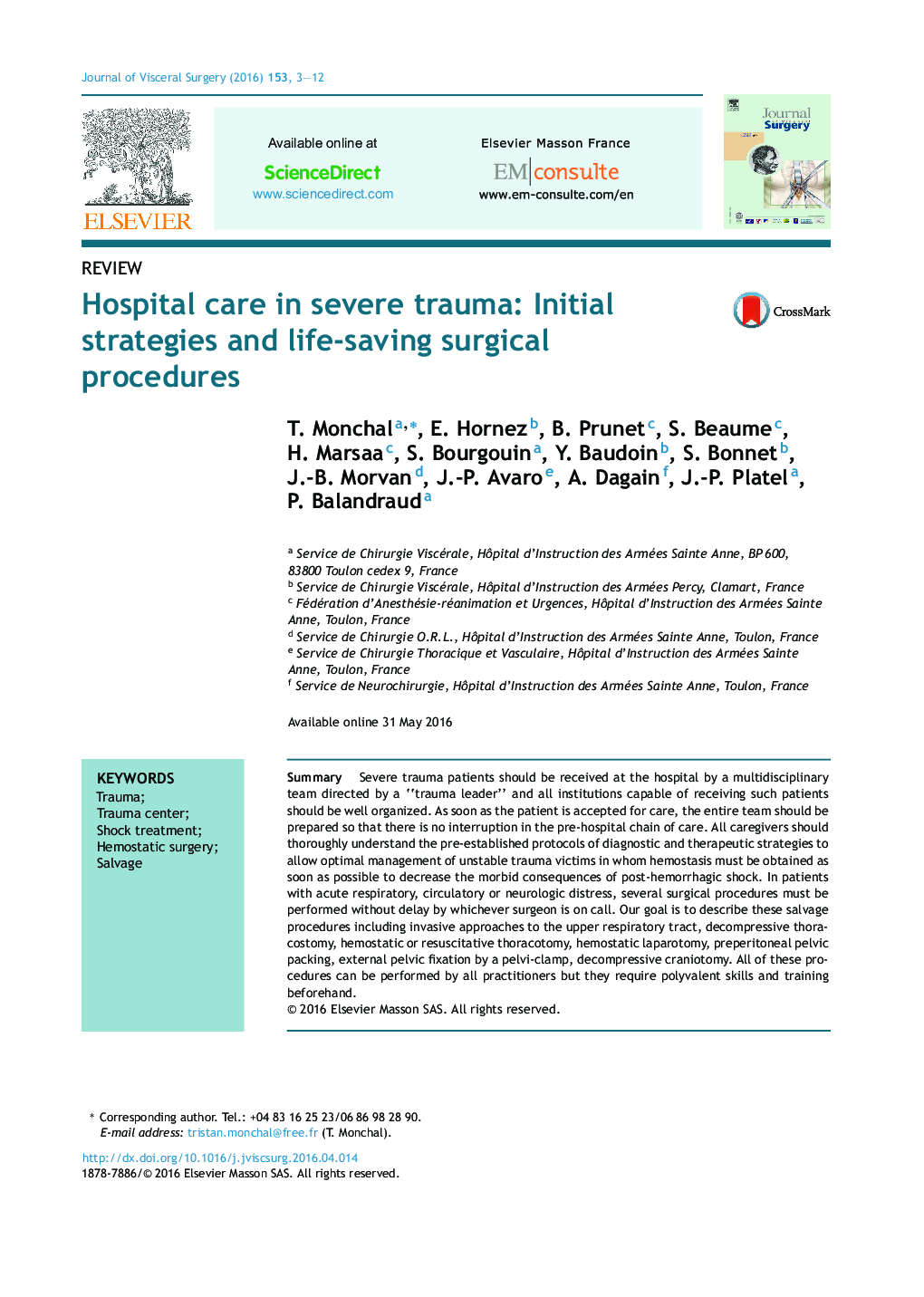| Article ID | Journal | Published Year | Pages | File Type |
|---|---|---|---|---|
| 3315711 | Journal of Visceral Surgery | 2016 | 10 Pages |
SummarySevere trauma patients should be received at the hospital by a multidisciplinary team directed by a “trauma leader” and all institutions capable of receiving such patients should be well organized. As soon as the patient is accepted for care, the entire team should be prepared so that there is no interruption in the pre-hospital chain of care. All caregivers should thoroughly understand the pre-established protocols of diagnostic and therapeutic strategies to allow optimal management of unstable trauma victims in whom hemostasis must be obtained as soon as possible to decrease the morbid consequences of post-hemorrhagic shock. In patients with acute respiratory, circulatory or neurologic distress, several surgical procedures must be performed without delay by whichever surgeon is on call. Our goal is to describe these salvage procedures including invasive approaches to the upper respiratory tract, decompressive thoracostomy, hemostatic or resuscitative thoracotomy, hemostatic laparotomy, preperitoneal pelvic packing, external pelvic fixation by a pelvi-clamp, decompressive craniotomy. All of these procedures can be performed by all practitioners but they require polyvalent skills and training beforehand.
